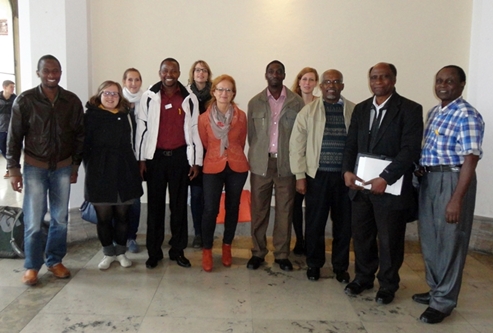As an entrepreneur or as a diasporan looking to get into business back home, Swahili is a language you can’t ignore. Here are a few reasons why you should rethink Swahili:
1. Swahili is spoken by over 100m people in Africa so it’s pretty hard to ignore a language that’s spoken by so many people. Its importance as a lingua franca is recognised by foreign media organisations such as the BBC, which broadcasts radio programmes in Swahili. Voice of America and Deutsche Welle have adopted similar tactics in their attempts to appeal to readers on the continent.
2. If you’re dealing with East Africa in any way, then it’s essential you take notice of the Swahili language. Swahili is a Bantu language and therefore spoken by many communities that inhabit the Great Lakes region and other areas of southeast Africa, including Tanzania, Kenya, Uganda, Rwanda andMozambique. It’s particularly useful to have knowledge of Swahili if doing business in Kenya. The country is the largest economy in East and Central Africa and has seen massive growth in areas such as telecommunications in the last decade.
3. Swahili is the national or official language of Tanzania, Kenya, Uganda and the Democratic Republic of the Congo, as well as being one of the official languages of the East African Community and African Union. It is a language of influence politically, economically and socially, and a knowledge of it can deepen business relationships.
4. Swahili plays an important part in education in several African countries. Uganda made Swahili a required subject in primary schools in 1992. It is also a compulsory subject in Kenyan schools and a distinct academic discipline in many public and private universities. With the next generation of leaders, as well as consumers all speaking Swahili, ignoring it would be short sighted.
5. Inter-African trade at this point in time is low. Poor transport connections and infrastructure have thus far capped business movements between African countries. However, as investment is made in improving logistics, trading languages will emerge to aid communication between different peoples. Swahili is well placed to become such a tool.
6. Swahili will become a language associated with IT and technology and, as a result, arts and culture. As investment continues in IT infrastructure and mobile and online solutions in countries such as Kenya, the economy will grow. When an economy grows so do people’s spending power, their exposure to information and their inventiveness and creativity. The result will be a flourishing tech-culture scene expressed through Swahili. “Swahilihood” is a term already starting to make appearances online.
7. Knowledge of Swahili will enhance the credibility of researchers interested in Africa. Areas such as big data, social media and digital information are growing and to gain critical insight into Africa’s evolving markets, having an understanding of Swahili will be very important.
I could be wrong, but I have seen languages rise from under the radar to become globally important. Ten years ago nobody would have even considered learning Chinese; now it’s a crucial global language. Fifteen years ago my Arabic skills were seen as useless. How about now? Swahili has the same potential to become a global language, and this is why anyone looking to Africa should pay attention to it now.
Neil Payne started his career in language teaching before moving into translation. Having seen the growing demand for language services in Africa, he set up Translation-Africa.com.











